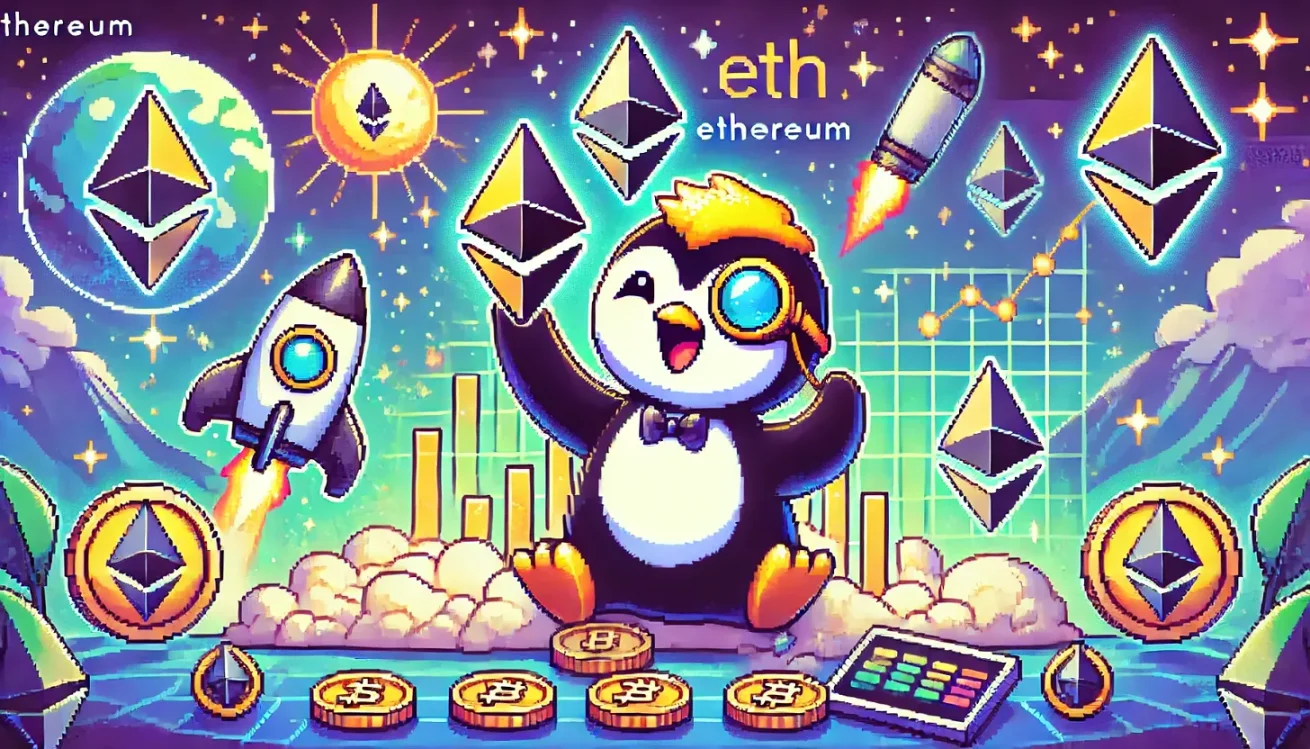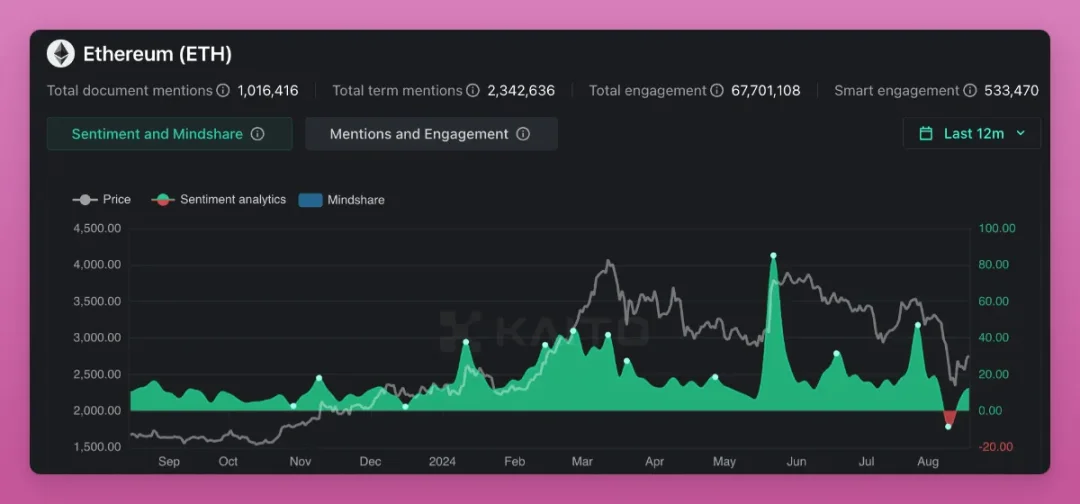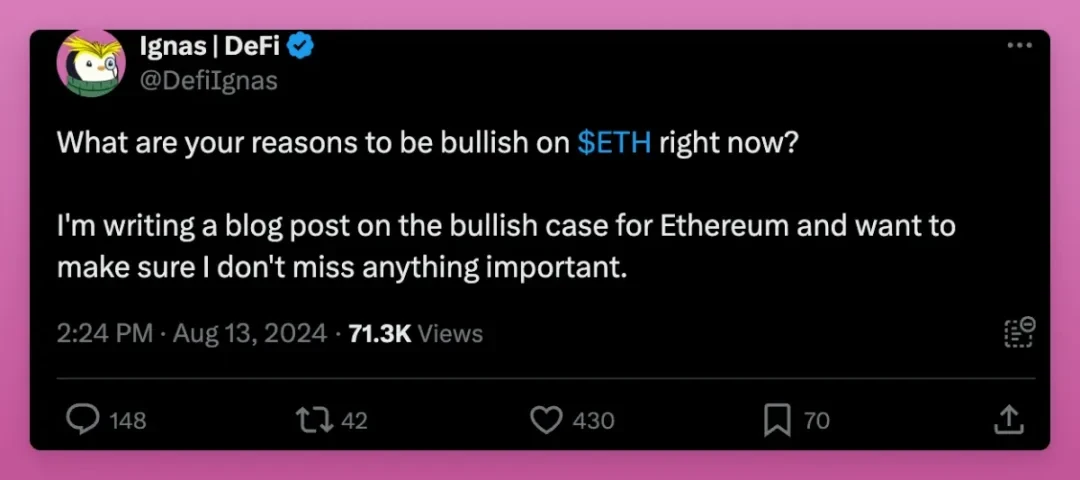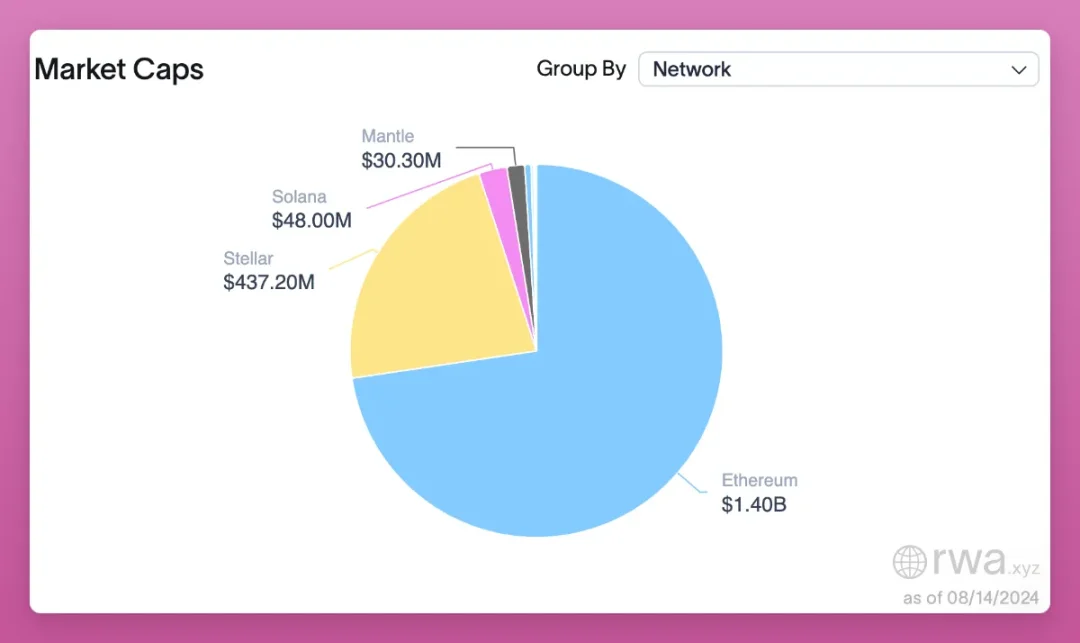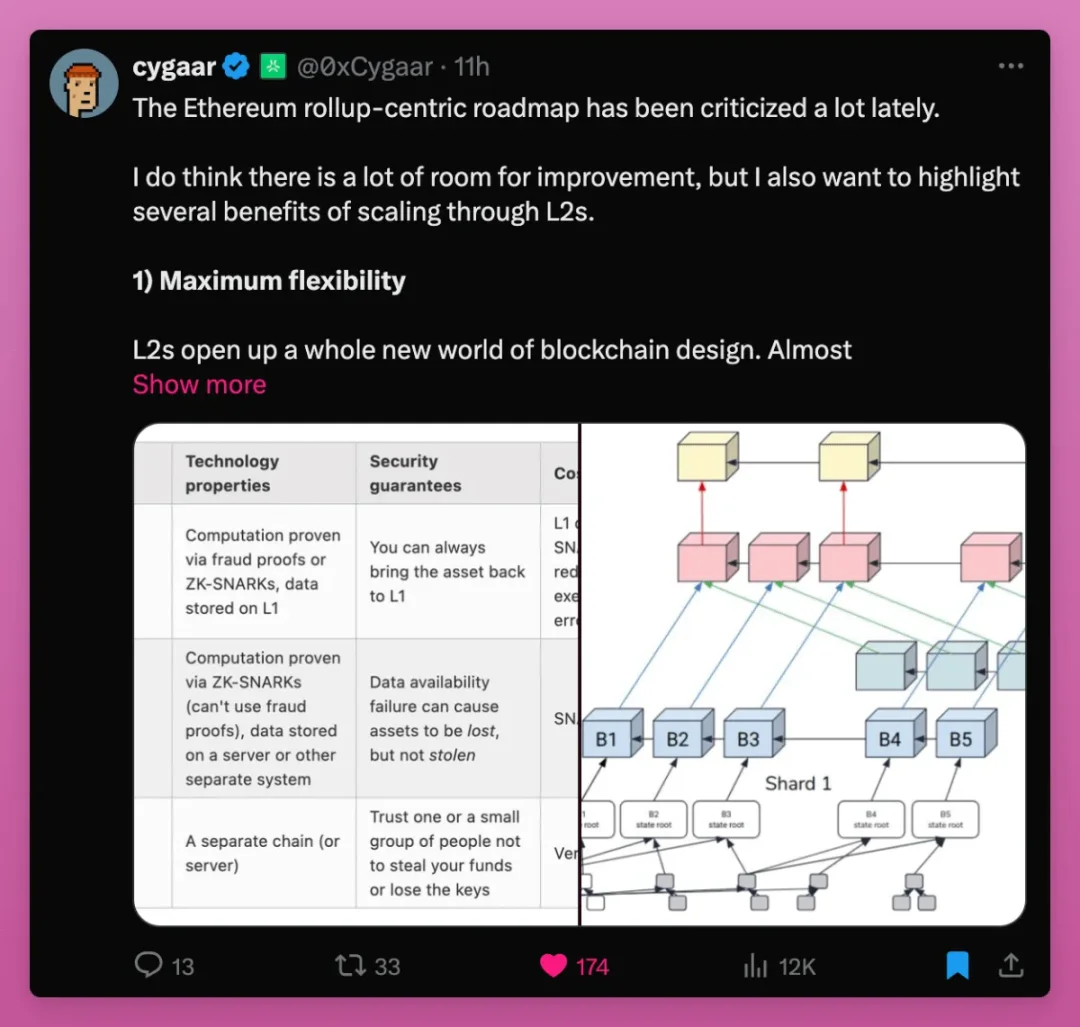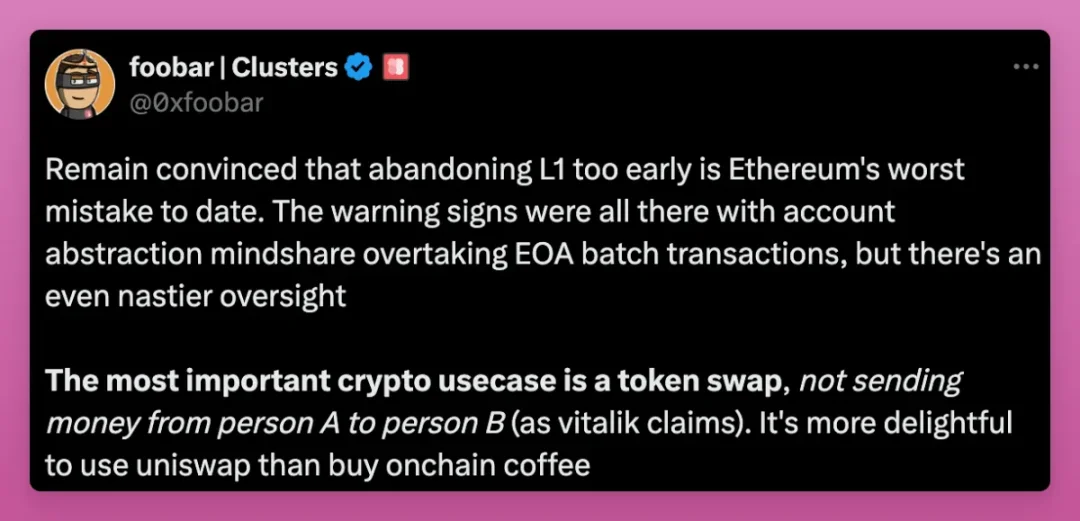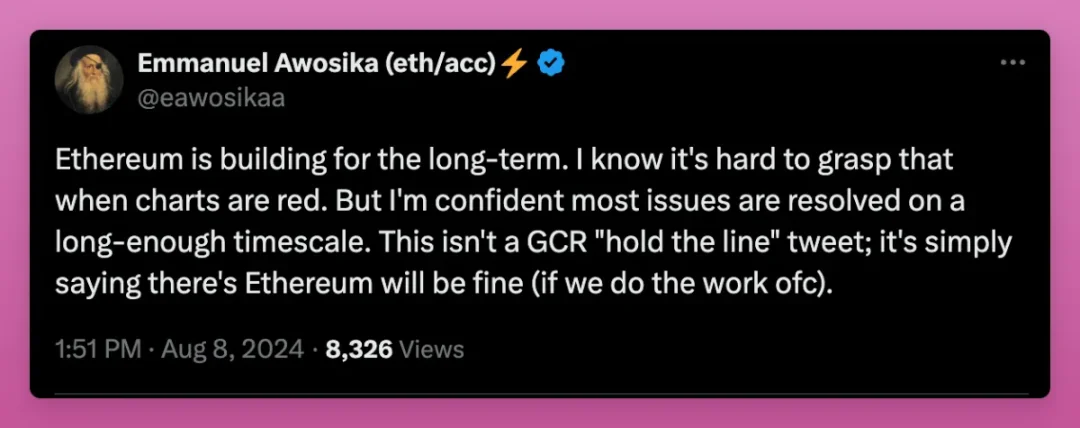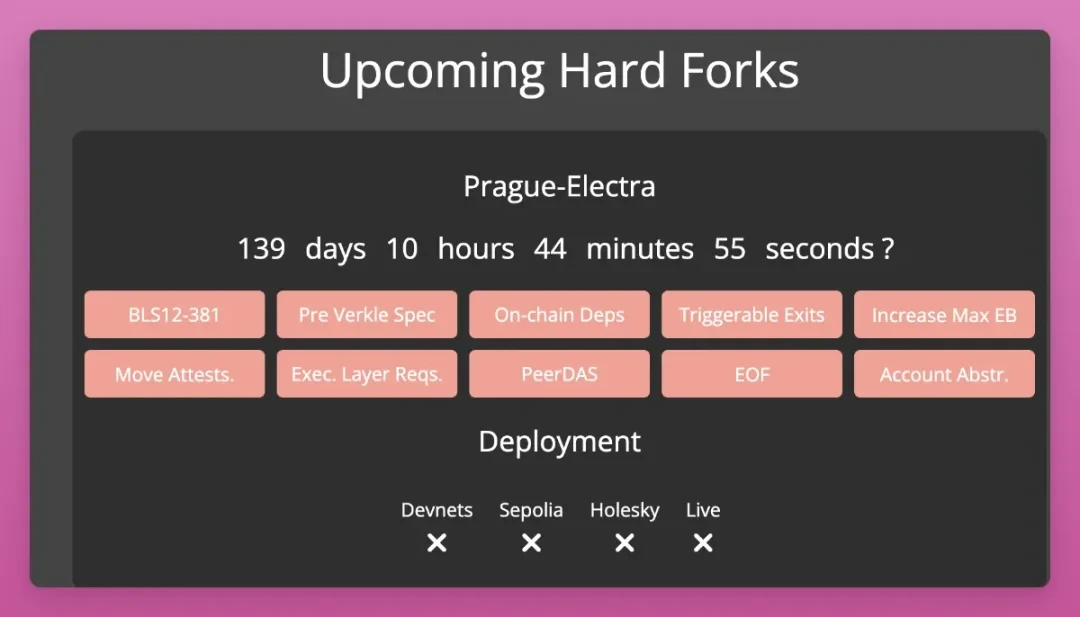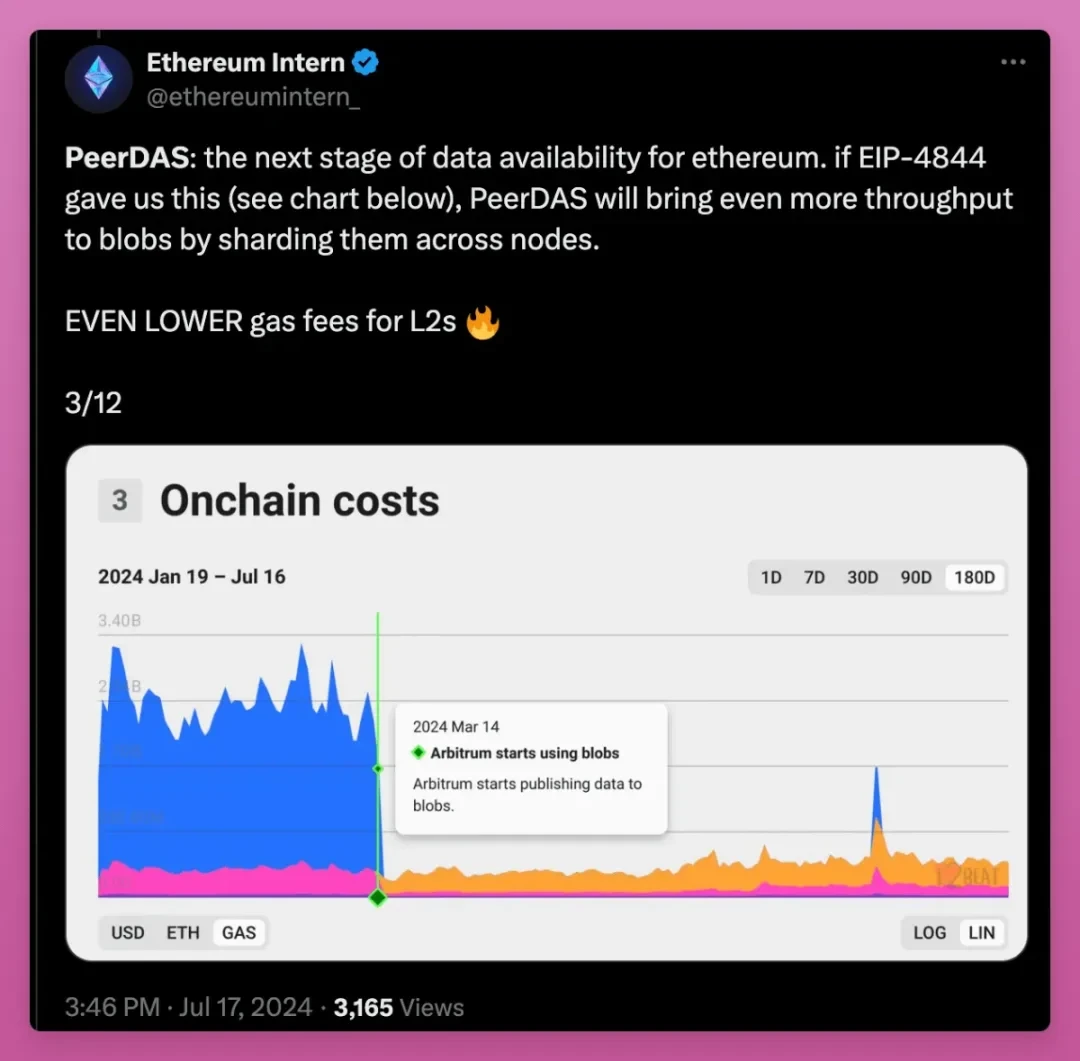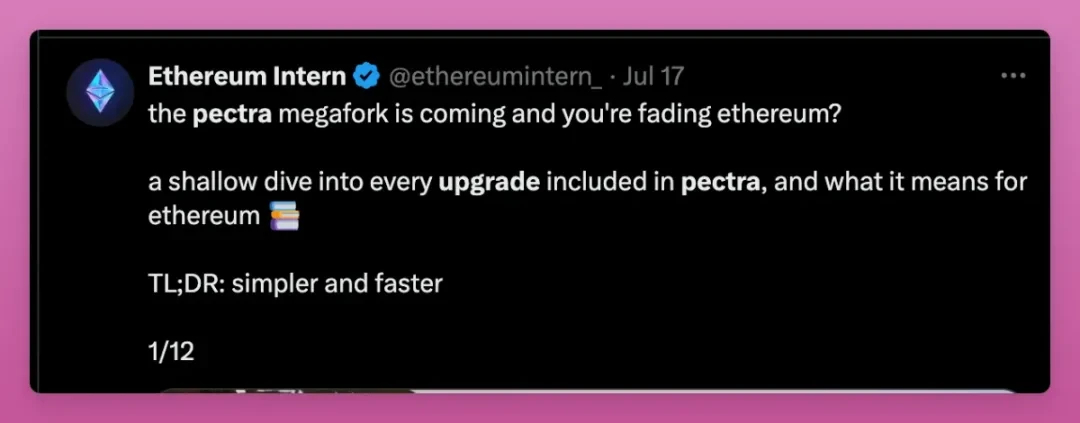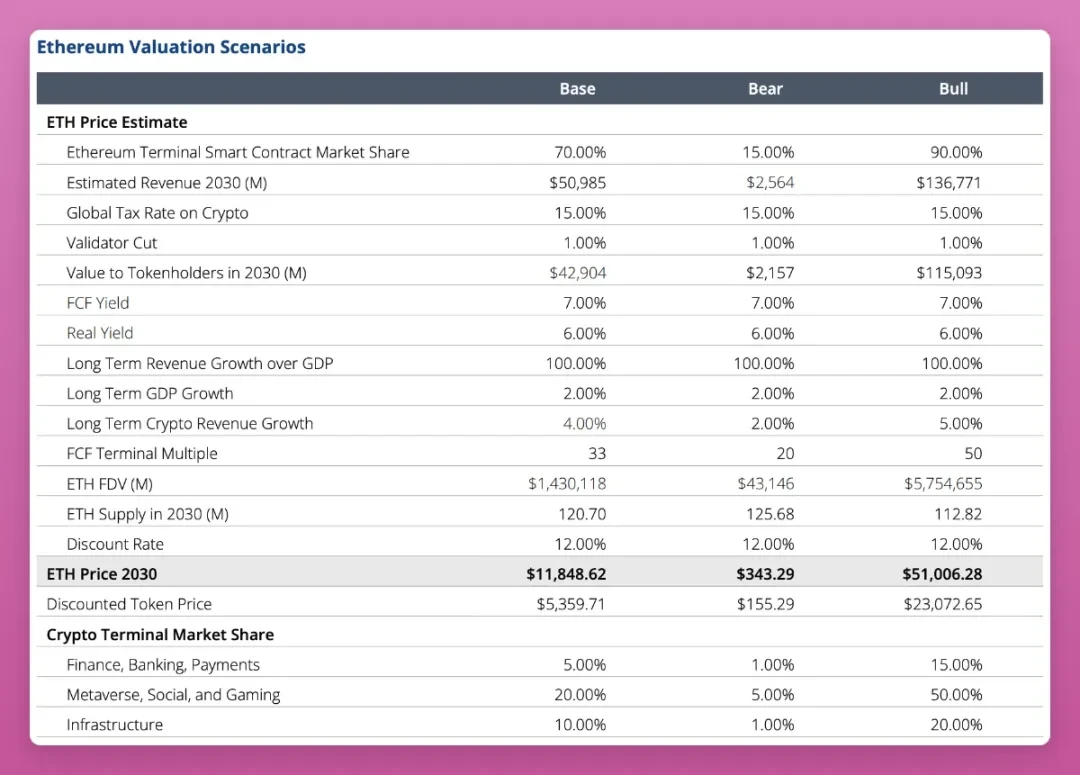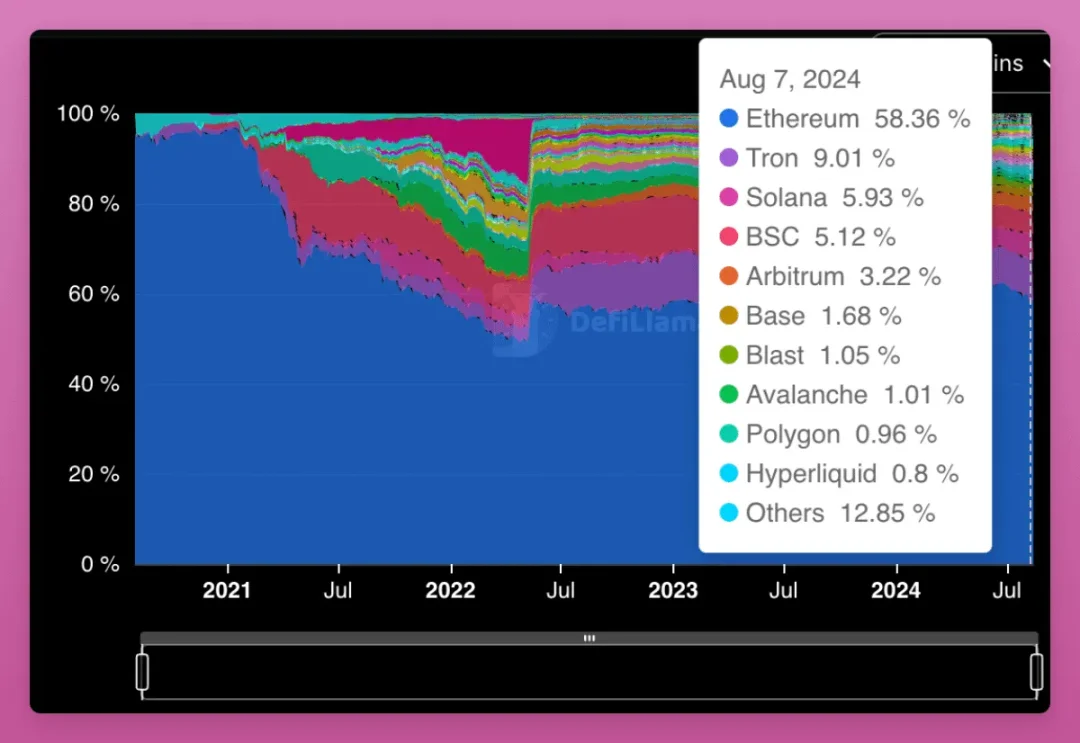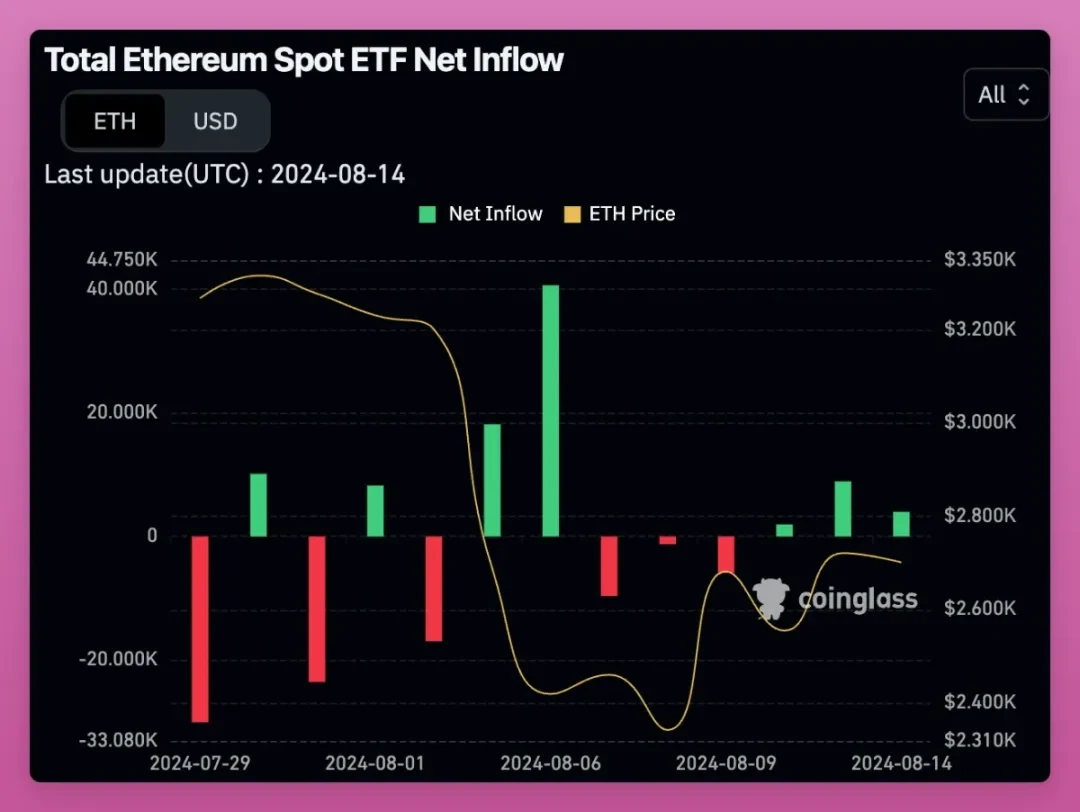As pessimism spreads, where is the turning point for Ethereum?
Original author: Ignas
Original translation: Luffy, Foresight News
Pessimism is spreading across the Ethereum ecosystem. It has underperformed Solana significantly since the market lows in early 2023, and the ETH/BTC pair has traded 47% lower over the past two years. When will Ethereum rebound?
Bearish case for Ethereum
The reasons for Ethereum’s poor performance are still controversial, but in my opinion, the main reasons are as follows:
-
Bitcoin is “digital gold,” a narrative that is simple and easy to understand, especially for new retail investors and institutions. In contrast, Ethereum’s narrative is complex. The most popular “digital oil” analogy is neither appealing nor accurate.
-
Solana is surpassing Ethereum: Solana is catching up to and sometimes surpassing Ethereum in terms of active users, transaction volume, and market share.
-
Therefore, Bitcoin is the safer choice for cryptocurrency adoption, while Solana is the riskier choice for smart contract adoption. Ethereum is sandwiched between the two.
-
Ethereum L2’s modular approach undermines liquidity and complicates the user experience.
-
Degens staking on a modular approach spreads purchasing power across Ethereum beta tokens such as multiple L2s, LRT tokens, and DA tokens. In contrast, staking on Solana only requires buying SOL.
I believe ETH will outperform BTC as market participants realize the high yield of airdropped mining rewards. In fact, my actual gains on ETH from the re-staking protocol airdrop alone are far higher than the increase in spot price.
However, this did not bring FOMO sentiment to ETH, probably because overexposure during the bear market made many people believe in ETH and buy it in large quantities.
On the contrary, few people in cryptocurrency hold SOL. When SOL rises, more cryptocurrency native users switch from ETH to SOL. And due to the lack of retail inflows in the market, the price of ETH stagnates.
Another issue is the decline in ETH destruction.
After the EIP-4884 Proto-danksharding upgrade, L2 payment fees dropped, resulting in lower ETH destruction. Although the ETH inflation rate is still below 1%, for those who are bullish on ETH as an ultrasonic currency, it has failed.
Since the release of EIP-4844 in March, the ETH destruction trend has reversed
There are currently very few ultrasonic currency memes on X. Bearish sentiment is all over X, but ETH sentiment remains bullish, although not as strong as BTC.
Here, let’s filter out the bearish sentiment and discuss the bullish case for Ethereum.
Bullish Case for Ethereum
There are many reasons to be optimistic about Ethereum, and I asked fans on X to share some of their perspectives.
https://www.ignasdefi.com/p/the-bullish-case-for-ethereum
Feel free to check out the comments section of the post, but I’ve summarized the top 10 reasons below (with the help of Kaito AI).
-
If gas prices remain around 20 gwei, Ethereum will have deflationary and scalable properties, making it an attractive and efficient network. Note: Ethereum gas prices have been below 20 gwei since March.
-
Regular users can now stake ETH individually from home, which increases decentralization and attracts individual investors and validators with consumer-grade hardware.
-
The strong developer community in the Ethereum ecosystem supports continued innovation and network robustness.
-
Ethereum is considered the leading smart contract platform with no real competitor.
-
Continued developments such as Layer 2 and interoperability improvements are key bullish factors, while Ethereum is working to reduce fragmentation and increase network efficiency.
-
Increased regulatory clarity, particularly in the U.S. and EU, has fostered confidence, allowing institutions like BlackRock to adopt Ethereum.
-
Improved staking options allow all ETH holders to participate in securing the network without requiring extensive technical knowledge or resources.
-
Major institutions such as Coinbase and BlackRock have stated that adoption of tokenizing real-world assets (RWAs) on Ethereum is increasing.
-
Expanding DeFi capabilities and stablecoin dominance on Ethereum provides huge room for further growth.
-
Renewed enthusiasm among Ethereum holders and users has helped to create a positive outlook and increase market interest.
I also asked several notable Ethereum people at X why they were bullish on Ethereum. Those who responded to my questions included Camila Russo (founder of The Defiant) and Christine Kim (Galaxy researcher).
Camila is optimistic about Ethereum because:
-
Mature DeFi ecosystem: Ethereum and Layer 2 offer the most mature DeFi ecosystem in crypto in terms of total TVL and transaction volume. This level of liquidity and DApp concentration will attract more users, and on-chain activity will begin to be reflected on Layer 1 again, pushing up gas fees and consuming more ETH. DeFi is key because finance is one of the few cryptocurrency use cases with meaningful product-market fit right now.
-
Decentralization and security: Ethereum’s decentralization and security have attracted the world’s largest institutions to join: BlackRock launched the BUIDL fund, PayPal has PYUSD, JPMorgan Chase, Santander and other large banks are testing blockchain settlement and tokenization on Ethereum, etc. Large institutions that cannot afford the risk of downtime or validator/miner attacks will continue to choose Ethereum.
-
ETH ETF: ETH is one of only two cryptocurrencies that U.S. institutional investors can invest in through ETFs, which will provide long-term support for ETH prices.
Christine Kim highlighted the network effect of Ethereum:
-
One of the main advantages Ethereum has over its competitors is the network effect. Ethereum is the oldest general-purpose blockchain and has the largest developer mind share (strong community/ecosystem), both of which help increase the value of the network.
Indeed, I prefer to store long-term assets on Ethereum. Solana has had multiple outages, while Ethereum has proven to be stable and reliable over the years.
I am also very optimistic about Ethereum as a test field for asset tokenization RWA. For example, 52% of stablecoins and 73% of US Treasury bonds in the crypto world are tokenized on Ethereum.
Network Distribution of U.S. Treasury Tokenization
If you’re bullish on Memecoins, Solana might be your choice; but to tokenize billions of dollars of RWA, Ethereum is the safest place.
Next, a big question is Layer 2.
Solana as an overall chain is fast and cheap, but it still has its limits.
Modular scaling using L2 provides a long-term solution, as scaling can always be increased by launching L2 for specific use cases. L2 provides greater flexibility, simplicity, and sovereignty. Cygaar puts it well in the following post:
https://x.com/0x Cygaar/status/1823856948330291578
Hopefully, the current issues with fragmented liquidity and user experience due to reliance on cross-chain bridges are only temporary. For example, Catalyst AMM will allow atomic swaps between different chains, eliminating the need for cross-chain assets. In this case, liquidity is still fragmented, but end users will get the best price because liquidity comes from multiple chains. More solutions like Catalyst are in the works.
Then L2 itself also made more efforts.
Optimism is integrating ERC-7683 to allow interoperability between super chains and the rest of Ethereum L2 through the application layer, which means that all L2s in the Optimism ecosystem will work as a whole.
Similarly, Polygon is building an AggLayer to achieve cross-chain one-click transactions, but in the protocol network.
There are also Calderas Metalayer, Avail Nexus and Hyperlane.
Multiple aggregation solutions are also a problem, but liquidity and user experience issues will be solved in the future.
I think people underestimate how quickly it’s happening. I recommend following Andy on X to stay up to date on modular expansion. Read this post from Blocmates for more information on multiple products that solve a problem.
In fact, Vitalik himself said that people would be surprised that “cross-L2 interoperability issues” are no longer an issue.
https://x.com/VitalikButerin/status/1820404774493110309
If you need more reasons to be bullish, check out Emmanuel’s post below. He is bullish because of Ethereum’s strong community, continued innovation, and long-term adaptability.
I would be very optimistic if L2 fragmentation issues are resolved and RWA tokenization adoption continues to grow on Ethereum, but these are long-term factors.
In the short term, there is a little discussed catalyst: the Pectra upgrade.
What is Pectra Upgrade?
The Pectra upgrade is the next major milestone for Ethereum and is expected to be launched in Q1 2025. It merges the Prague (execution layer) and Electra (consensus layer) updates.
For more details on the timeline and specific EIPs, visit Ethroadmap.com
All major Ethereum upgrades have been hyped up before, but Pectra doesn’t seem to have caught the attention.
I understand why. Ethereum has undergone major changes: migration from PoW to PoS, ETH burn start, and EIP-4884, etc. However, Pectra has some cool upgrades.
1. Account abstraction: improving user experience
One of the biggest changes to Pectra is the way it handles accounts.
Currently, managing a wallet involves a lot of annoying steps, from signing transactions to managing gas fees for different networks. With account abstraction, this process can be greatly simplified.
EIP-3074 and EIP-7702 are two proposed improvement proposals. EIP-3074 allows traditional wallets (externally owned accounts or EOAs) to interact with smart contracts, such as batching transactions.
EIP-7702 goes a step further and allows an EOA to temporarily act as a smart contract wallet during a transaction. Temporary means that your EOA wallet becomes a smart contract wallet only during a transaction. It works by adding the smart contract code to the EOA address.
In practice it means:
-
USDC can be approved and exchanged for UNI in a single transaction.
-
DApp can provide users with Gas fees
-
Pre-approve DApps to be used with this wallet and set spending limits
NOTE: EIP-7702, written by Vitalik in 22 minutes, is prioritized and EIP-7702 is also compatible with future implementations of account abstraction.
This EOA temporarily becomes a smart contract wallet approach is cool, because current DApps are generally incompatible with smart account wallets. I hope account abstraction will gain more attention after the upgrade.
2. Staking Improvements
For validators, Pectra brings some significant changes.
EIP-7251 increases the maximum stake of a validator from 32 ETH to 2048 ETH. It allows large stake providers to consolidate their stakes, thereby reducing the number of validators and alleviating the network load.
This is also a benefit for smaller stakers as it provides more flexible staking options (40 ETH can be staked). In addition, the ETH staking queue time will be reduced from hours to minutes.
3. Scalability Improvements
Pectra introduced Peer Data Availability Sampling (PeerDAS) through EIP-7594.
Like Proto-Danksharding in the previous Dencun upgrade, PeerDAS will further reduce L2 transaction fees. But I cant find a specific number on how much cheaper it will be. 0x Breadguy mentioned that Pectra will increase blob capacity by 2 to 3 times.
https://x.com/ethereumintern_/status/1813586075828265134
Then there are multiple technical upgrades like BLS 12-381 for shorter BLS signatures (reducing gas costs), and EIP-2935 for verifying transactions without all of the blockchain history.
These EIPs, along with Verkle Trees Transition (EIP-6800), which will eventually replace the existing Merkle Tree structure, can make light clients more secure and make it easier for nodes to participate in the network, thereby increasing decentralization.
One of the major changes is the 11 EIPs for the EVM, which will make it easier to write and deploy smart contracts, thereby reducing costs and increasing efficiency. In other words, development on Ethereum will become smoother.
This post from Ethereum Intern briefly explains the impact of the technology upgrade.
Im glad that single-slot finally (SSF) came with the Pectra upgrade, but its not yet included in the upcoming Osaka upgrade.
Vitalik mentioned in December 2023 that SSF is the simplest way to solve most of the flaws in Ethereum PoS design.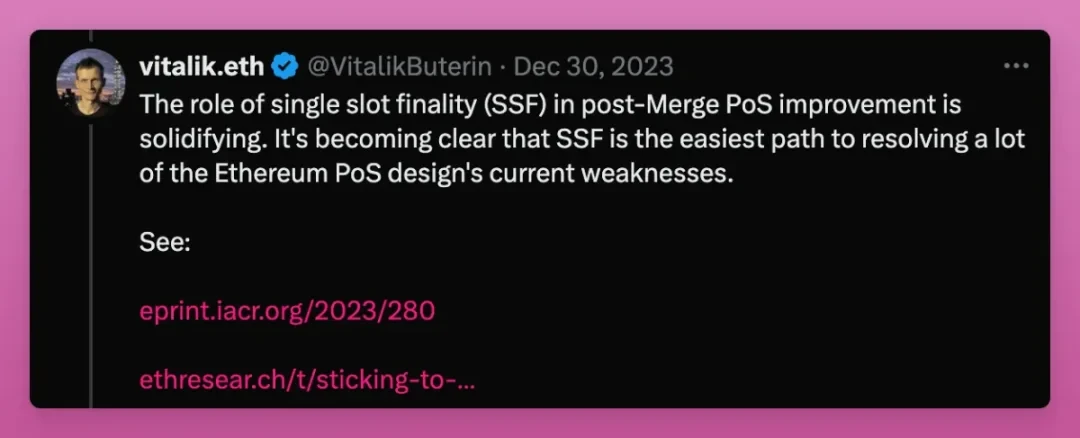
Currently, Ethereum’s proof-of-stake consensus takes about 15 minutes for a block to reach finality, meaning that the block cannot be changed or deleted without paying a huge economic cost. SSF seeks to reduce this time to one slot, or about 12 seconds, ensuring that blocks are finalized almost immediately after creation.
In practice, this means faster and more secure cross-chain, as well as faster CEX deposits. It is disappointing that it has not happened yet. Its exclusion from the Pectra upgrade is pessimistic and shows that Ethereum developers are still not prioritizing L1 scaling. If there were more obvious signs that the core Ethereum community is focusing on L1 scaling, I would become more optimistic. But at the moment, L1 scaling does not seem to be a priority.
Regardless, Pectra is a technology upgrade and I think the market is underestimating its significance.
Next, let’s talk about ETH price.
VanEck predicts that the base price of ETH will reach $11,800 by 2030
To be honest, $11,800 is pretty pessimistic (I expect it to be much higher in 5 years), but keep in mind that VanEck’s base price prediction for Solana in 2030 is $335.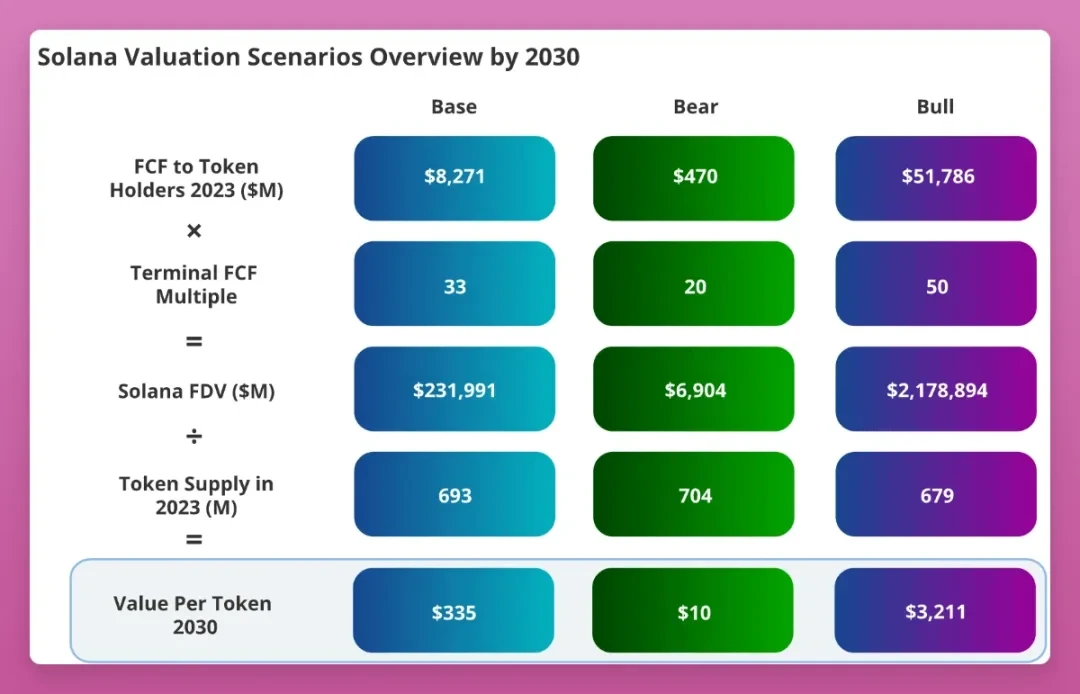
Therefore, based on the base case, ETH has a potential gain of 4.4x, while SOL has a potential gain of only 2.2x. Note that both of these forecasts were published over a year ago (before the ETH ETF was launched), and I would love to see their updated forecasts.
By the way, Ark Invest CEO Cathie Wood expects ETH to reach $166,000 and BTC to reach $1.3 million by 2030.
However, I am more excited about the bullish prospect of ETH reaching $51,000. VanEck’s ETH price prediction is based on:
-
VanEck predicts that by 2030, Ethereum will have a 70% market share of smart contract platforms, leveraging its position as the leader in open-source global settlement networks.
-
Ethereum revenue is expected to grow from $2.6 billion per year to $51 billion by 2030. This growth is attributed to the increase in transaction fees, MEV, and the introduction of SaaS, such as using ETH to secure other protocols (restaking).
-
Ethereum is expected to attract more economic activities in the fields of finance, banking, payments, metaverse, social, gaming, and infrastructure.
-
Ethereum is valued for its potential as a store of value asset, with its utility enhanced by smart contract programmability and cross-chain messaging technology (smart collateral).
Below is an overview of the three scenarios: base, bear, and bull.
The 70% smart contract dominance scenario is pretty fair in my opinion, even though Ethereum’s dominance is only 58% right now (but if you include all L2s, Ethereum’s dominance is around 65%). Despite SOL’s crazy run, dominance has remained the same since early 2022.
TVL dominance will be a key metric to watch as institutions seem to care a lot about it.
Another metric that both institutional and retail investors watch is ETH ETF flows.
Ethereum ETF
If someone had told me a few months ago that ETH had an ETF but it was trading below $3,000, I would have thought crypto was in a bear market.
It is too early to draw conclusions, but the ETH ETF is beginning to show bullish momentum. Grayscale outflows are declining rapidly, and net inflows have been positive for three consecutive days.
We already know that Grayscale can have a significant impact, but Ethereum’s upside potential will be a pleasant surprise. If the trend continues, the future of ETH will be bright.
This article is sourced from the internet: As pessimism spreads, where is the turning point for Ethereum?
Related: Short video review: Top 10 highlights from the Nashville Convention
Original author: Luke Martin Compiled by: Odaily Planet Daily Azuma The 2024 Bitcoin Conference was held in Nashville, Tennessee from July 25 to July 27 local time in the United States. Due to the attendance and speech of former US President Trump, the attention of this conference can be described as the focus of all attention. In the early hours of Sunday morning, Odaily Planet Daily had already used 10,000 words to write the full text of Trumps 40-minute speech ( Full text of Trumps speech at the Bitcoin Conference: Will establish a strategic reserve of Bitcoin and fire Gary Gensler ). In order to help everyone feel the atmosphere of the conference more intuitively, Odaily Planet Daily will select the top ten most exciting moments of the Nashville conference…
